 Today, the German Beer Purity Law — Reinheitsgebot — celebrates 509 years of absolutely nothing but barley (or wheat), hops, water, and yeast. Not so much as a spruce tip or cacao nib may defile anything called “beer.” Across Germany, breweries, brewing museums, beer gardens, and microbreweries will mark the purity law anniversary by opening their doors to allow a glimpse behind the scenes for visitors to experience the art of brewing and its long history. German brewing traditions are influenced by the highly controlled, pragmatic Bavarian approach of the Reinheitsgebot, coupled with the flamboyant, daring, and just plain weird ale-brewing approach that has brought the world altbier, gose, and Berliner weisse. Peaks & Pints celebrates German Beer Day with a special flight, Peaks & Pints Beer Flight: German Beer Day.
Today, the German Beer Purity Law — Reinheitsgebot — celebrates 509 years of absolutely nothing but barley (or wheat), hops, water, and yeast. Not so much as a spruce tip or cacao nib may defile anything called “beer.” Across Germany, breweries, brewing museums, beer gardens, and microbreweries will mark the purity law anniversary by opening their doors to allow a glimpse behind the scenes for visitors to experience the art of brewing and its long history. German brewing traditions are influenced by the highly controlled, pragmatic Bavarian approach of the Reinheitsgebot, coupled with the flamboyant, daring, and just plain weird ale-brewing approach that has brought the world altbier, gose, and Berliner weisse. Peaks & Pints celebrates German Beer Day with a special flight, Peaks & Pints Beer Flight: German Beer Day.
Peaks & Pints Beer Flight: German Beer Day
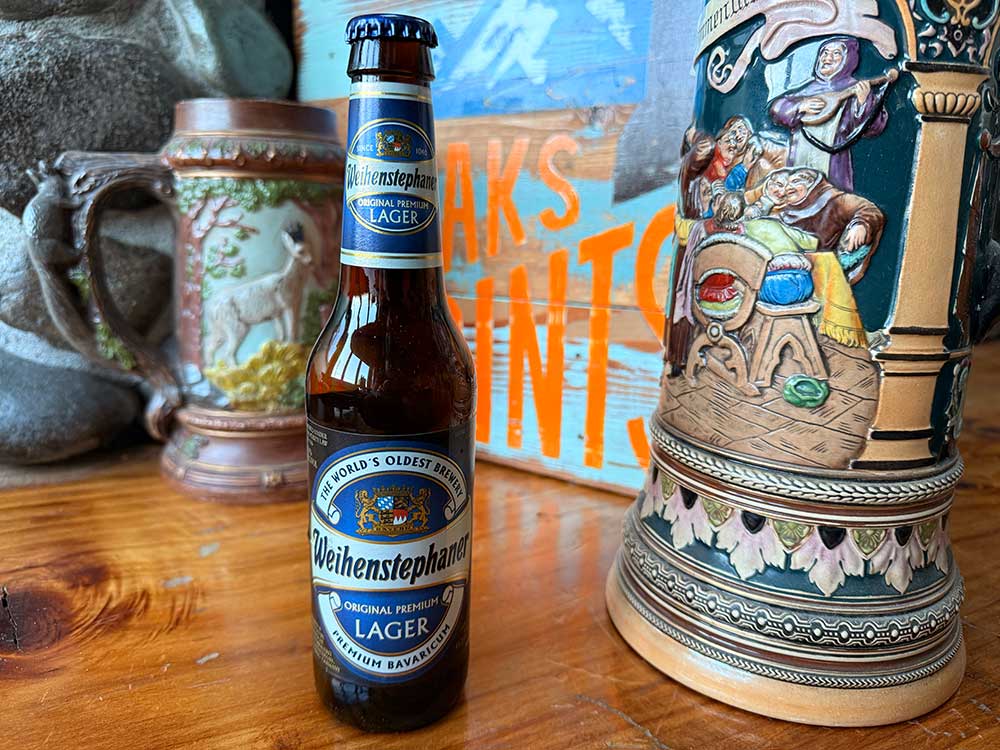 Weihenstephaner Original Premium Lager
Weihenstephaner Original Premium Lager
5.1% ABV
In 1895, Spaten Brewery brewed a Helles lager to compete with pilsner-style beers. Unlike German pilsner, Helles lager emphasizes malt sweetness rather than bittering hops; the beer isn’t sweet by any means, but the hops just balance the beer rather than provide a bitter edge. Well-balanced and classic, Weihenstephaner Original Premium Lager is a delicious Helles. Light-bodied and refreshing, it’s well-brewed and executed with just the right amount of malt focus to make it appropriate for the style.
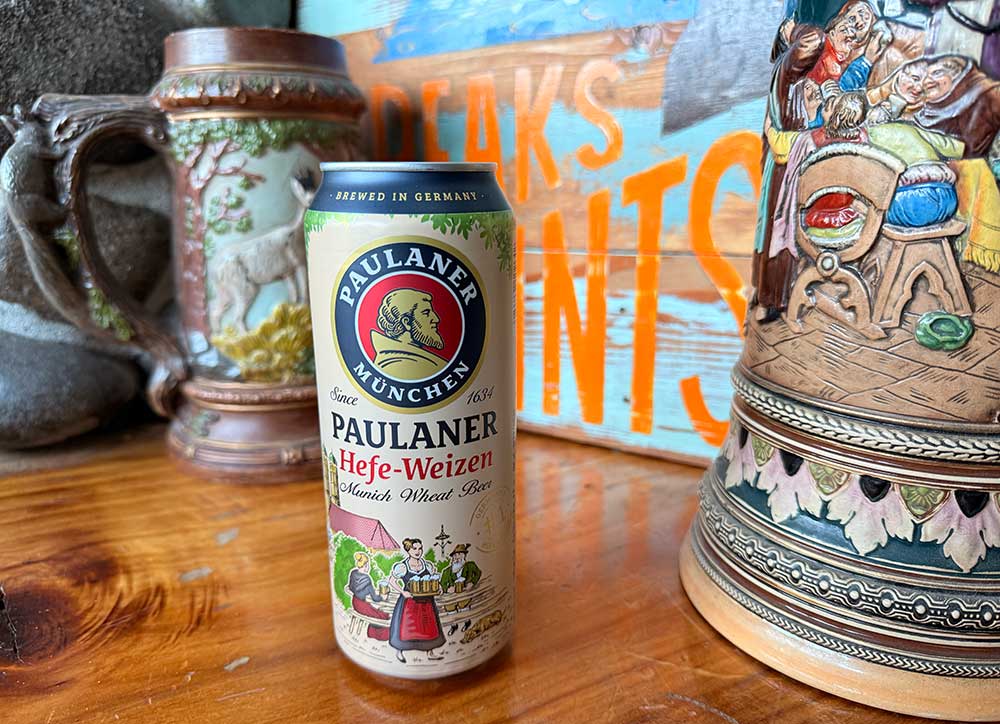 Paulaner Hefe-weizen
Paulaner Hefe-weizen
5.5% ABV
Internationally marketed as Weissbier, sold in the US as Hefe-weizen, Germany’s number one wheat beer, Paulaner‘s hefe hits the nose with lemon, light banana, hints of coriander, and cloves. The lemon, citrus, and banana are noted on the tongue, and the coriander and clove are easily defined. It’s bready and yeasty, too.
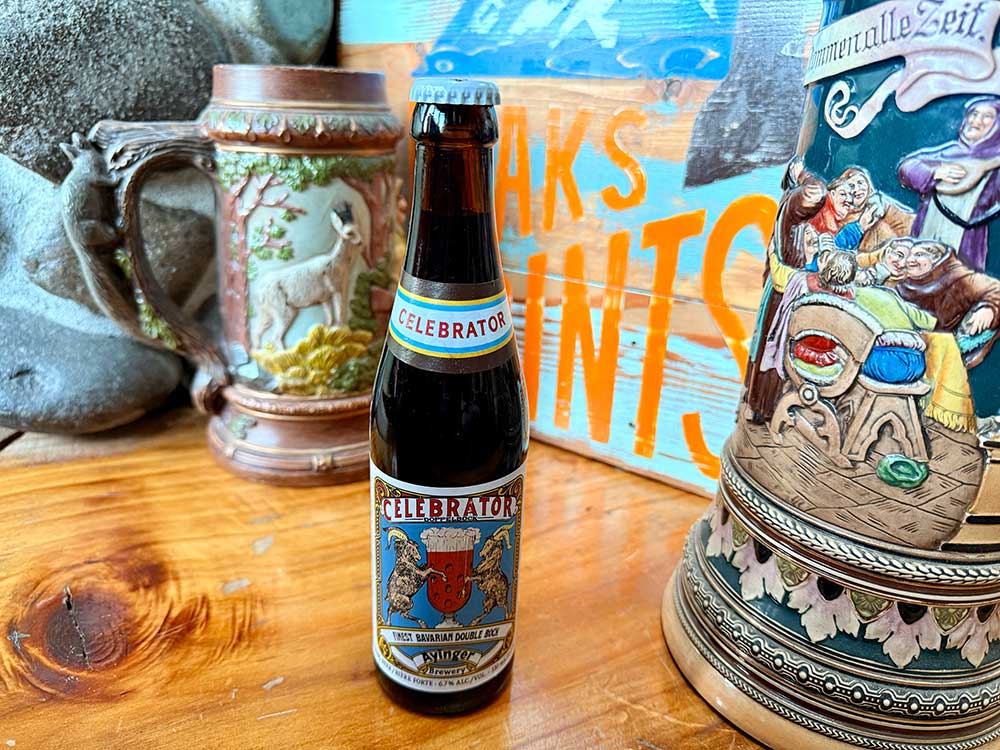 Ayinger Celebrator Doppelbock
Ayinger Celebrator Doppelbock
6.7% ABV, 24 IBU
About 25 kilometers from the Oktoberfest grounds in Munich is a little town called Aying, home to the beloved Ayinger Brewery (Brauerei Aying). This 143-year-old brewery has a deep family history and remained almost entirely unchanged until a new, updated brewery was built in 1999 to keep up with the growing market. Again and again, Ayinger has won awards for its beers, including the World Beer Cup and the Deutschen Landwirtschafts Gesellschaft – DLG (German Agricultural Society) gold and silver medals. During Lent, as legend goes, German monks sustained themselves by sipping strong, dark lagers dubbed doppelbocks. This timeworn tale of liquid bread tends to overshadow an indisputable truth: Doppelbocks are fantastic feats of brewing engineering, no more so than Ayinger Celebrator. With accolades from the late Michael Jackson and a collection of gold medals from the World Beer Cup, this rich, toffee-rocked lager is dark, crisp, with a touch of chocolate and grape notes. While presenting a full body, it’s not cloyingly sweet and features a wonderfully creamy body and enough alcohol to warm your palate.
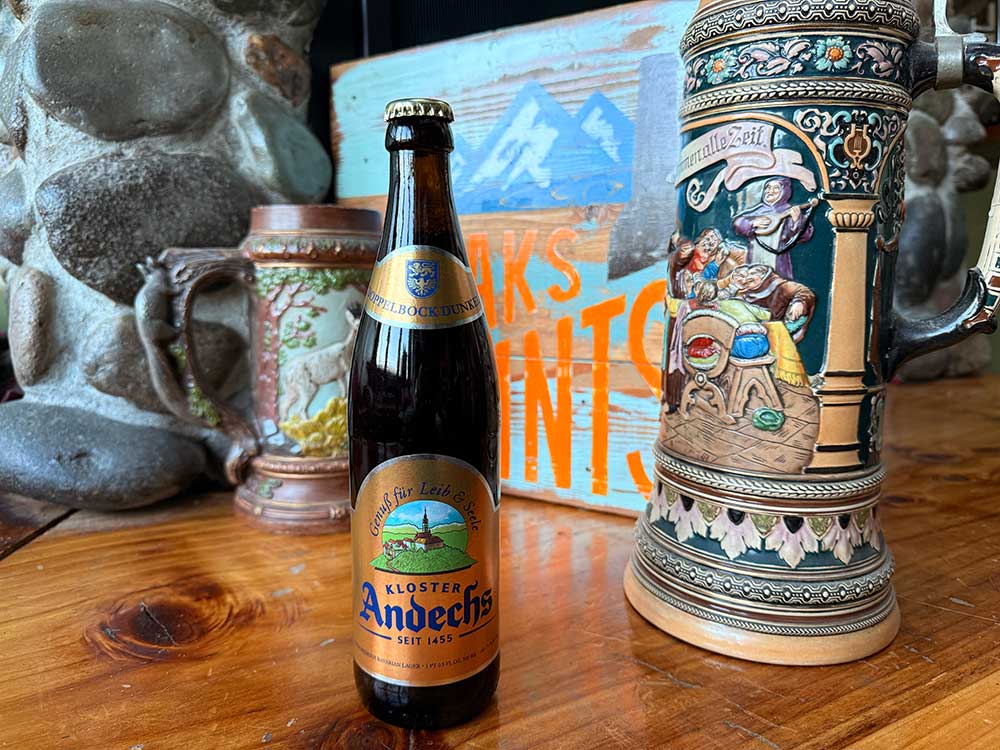 Kloster Andechs Andechser Dopplebock Dunkel
Kloster Andechs Andechser Dopplebock Dunkel
7.1% ABV
This bock bier from the Holy Mountain in Bavaria hits the glass with a dark copper color with hints of fiery red coloring. Soft roasted notes and a touch of dried fruit accompany an accentuated caramel aroma. The taste is full-bodied and velvety, strong but powerful and lusty, with a pleasant malt aroma. It has a readily discernible sweetness, roasted cocoa notes, and a slight hop bitterness. With a strong finish, the Kloster Andechs Andecher Dopplebock Dunkel ends on a lasting semisweet chocolate note.
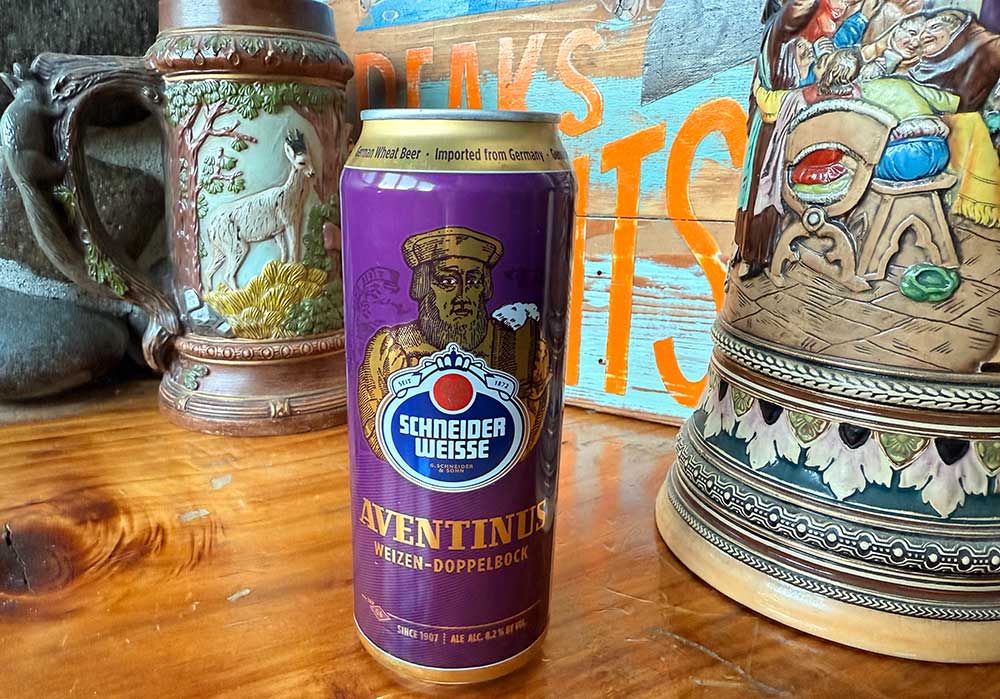 Schneider Weisse Mein Aventinus (Tap 6)
Schneider Weisse Mein Aventinus (Tap 6)
8.2% ABV, 16 IBU
Schneider Weisse has a history dating back to 1872, when the company G. Schneider & Sohn was founded in Munich by royal brewer Georg Schneider I and his son Georg Schneider II. When the King of Bavaria later decided to sell the rights to brew wheat beer, Schneider snapped it up, acquired the Weisses Bräuhaus in Munich (the oldest wheat beer brewery in the city), and became the first “common man” to brew wheat beer in Bavaria. According to the official website, the company expanded its operations to the nearby towns of Kelheim and Straubing in 1927, and subsequently, after the breweries in Munich were bombed and destroyed during World War II in 1944, they moved their entire production to Kelheim. Schneider Weisse’s basic assortment of beers consists of seven “Taps”, including Aventinus (Tap 6), a strong dark wheat, or weizenbock. It hits the tongue with grain, caramel, dough, vanilla, lemon sourness, banana, cloves, chocolate, marzipan, raisin, plums, and brown sugar. Seriously.
LINK: Peaks & Pints beer and cider cooler inventory
